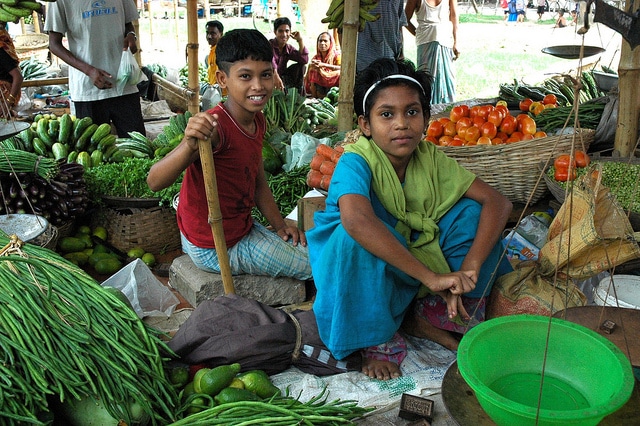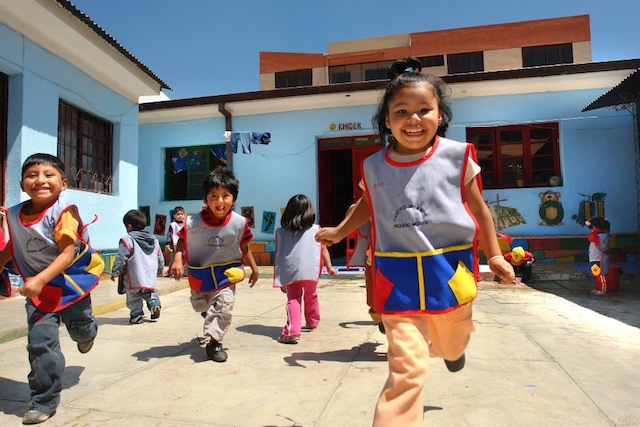
Before I take any international trip, my friends and family become overwrought with “helpful pieces of advice” for me. Most of it is usually common sense like not doing drugs in alleyways or leaving hundreds of dollars unattended on tables; however, one piece that stood out to me before embarking to Cambodia was to not buy cheap gimmicky souvenirs from street vendors. At the time I was a bit of an impulsive shopper, especially for small purchases. After deciding this was one piece of advice I wasn’t going to follow, I determined it wouldn’t be the worst, as instead of ending up dead in an alleyway, I’d probably be out $3 but would have a pile of bracelets and a local merchant would have been supported.
After arriving in Siem Reap — a small town next to the famed Angkor temples — this shopping analysis held true. I strolled through local markets picking up scarves and key chains; however, I soon realized many of these “merchants” were in fact small children. At first this choice in salesmen seemed fitting, many of my friends (and probably myself, as well) seemed significantly more likely to make a purchase from a child, if only because they were cuter. That being said, I couldn’t begin to wonder why at 11am on a Tuesday these kids were posing for photos with me and endlessly offering me “pretty bracelet for a pretty lady? Only one doll’ah” instead of being in school.

The Facts About Child Street Vendors
Unfortunately, child labor in regards to street vendors are not an isolated issue. Across many developing countries, children of low-income families often end up being forced out of an education to instead help support their parents and siblings by selling candy, cigarettes or lottery tickets on the streets. This creates a vicious cycle of poverty, as while working on the street provides a short-term solution to make money, dropping out of school means the child forgoes the opportunity to receive an education and create a better life for themselves in the future.
In addition to this cycle of poverty, child street vendors are also at a high risk of encountering sexual abuse. A study was recently conducted in Vietnam by the Research Center for Management and Sustainable Develop and found that 92.5% of street children surveyed reported being sexually abused. Since the kids often stay out selling their goods late into the night, many are exposed to potentially dangerous customers on a regular basis. Many are easy targets simply because of their innocence and lack of knowledge. The same study found that many of the children surveyed did not understand what sexual abuse was, even if they were victims of it themselves.

Breaking the Cycle
Child street vendors represent a difficult and complex issue; however, there are several organizations aimed at providing care and support to get these children off the streets:
Amani works with street children in Tanzania to give them a safe place to live, along with three nutritious meals a day. Workers and volunteers at the home are also committed to providing children with an education and increasing their knowledge about sexual health. They rely heavily on volunteer support, welcoming travelers to stay and play with or help educate the kids at the home in Tanzania, near the base of Mount Kilimanjaro. They also take online donations and hold a “Kilimanjaro Climb for Kids.”
Heal Kids works with disabled and disadvantages kids in Myanmar by building schools and libraries, supporting orphanages, and providing much needed medical treatment and clean water. Their overall mission is to improve the lives of poor, orphaned and abandoned children and do so through donations and sponsorship. Supporters can raise money in their charity runs, extreme adventure challenges (think skydiving for charity) and hosted events and can also organize the collection of clothes, books and toys for donation.
This foundations works with street children in Latin America through projects that ensure their basic needs are met. This includes providing children with food, school supplies, heath care and clothing. They also work to provide psychologists, teachers and social workers for the kids. They work with a team of volunteers and also take donations to sponsor a child.
Have you worked on a project that helped child street vendors? What is your opinion on the issue? Please share in the comments below.
Latest posts by Judi Zienchuk (see all)
- 5 Common Travel Practices That Are Detrimental For The Environment (And How You Can Easily Change Them) - Oct 7, 2017
- Gingerbread: History, Traditions And Where To See The World’s Sweetest Artwork - Dec 4, 2015
- The Dark Side Of Easter: Child Slave Labor And How To Source Ethical Chocolate This Holiday - Mar 16, 2015
- Tips For Giving Your Trip A Responsible Makeover - Mar 6, 2015
- Going Local In Sumatra, Indonesia - Oct 21, 2014



